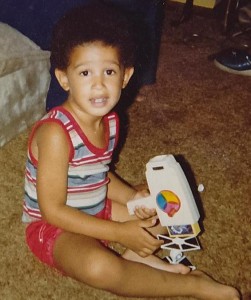
Communication and accountability are the key to any solid relationship, so why don’t we ask questions about it when it comes to getting to the root of domestic violence?
This is going to be complicated.
I say that because talking about domestic violence usually is. One of the problems that makes such a conversation so convoluted and complicated stems from the notion that the issue itself is treated so black & white.
“You don’t hit a woman, ever.”
While I agree with the sentiment wholeheartedly, I just don’t think it’s that simple, at least not any more simpler than anything else in life. Now I know some of you just read that and said to yourself, “Shimbo is about to condone hitting women.”
Believe me, I’m not. And here’s where the problems lie. I believe that the biggest driver of conflict in life is lack of communication and accountability. Now before we go any further, my definition of accountability has nothing to do with the allocation of blame. Being accountable is not about saying “it’s your fault.” So often, when it comes to domestic strife, we spend far more time looking at the aftermath than we look at the events that lead up to it. It’s a conversation that’s rarely had, even in the context of relationships.

This is me right after being spirited away from an abusive home by my mom. Best decision she ever made, and she had to make it.
I was born into a home where domestic violence reigned. I was too young to remember any of it, as my mother woke up one morning and realized that she wasn’t going to continue being a victim and left Evansville, IN with me in tow. I was only two years old. Nothing about their relationship was about communication or accountability. They certainly didn’t communicate positively with one another, and my father wasn’t in any way accountable for his role not only as a parent, but also as a spouse. My mother showed accountability to me when she refused to have me grow up in that environment.
Later on, my mother met the man who would become my stepfather. While he was not physically abusive, he was verbally abusive, and some of that seeped into me as a child, as I would parrot some of his comments, not knowing any better. Because he was an alcoholic and drug abuser, and she was scarred by two failed previous marriages to insanely violent men, their primary form of communication was argument. They couldn’t talk to one another, so they simply yelled. Clearly there was no accountability to be had there.
Some days, he was honestly in the wrong. Other days, my mother’s hair trigger was the culprit. Looking back on those years helps inform what I want to talk about here. When considering the current issues surrounding Ray Rice, his wife Janay and the NFL, there seems to be a general lack of communication and accountability on a number of fronts, and not just theirs. To get a clear view of this, we must also shine a light on the media and you, the public.
So often a habit is made of holding celebrities to a higher standard of accountability than common people would hold themselves to. It’s as if being recognized makes them immune from making mistakes, particularly if those mistakes are egregious in nature. Whether or not you’re on TV, Movies or making millions of dollars, you are prone to the same levels of stupidity as a minimum wage worker.
While everyone was scrambling to crucify the NFL for not giving Baltimore Ravens Wide Receiver Ray Rice a harsher penalty for assaulting his then fiancee–now wife–Janay. And if you read Caitlin Elam’s excellent article today, you’ll know that we did too. And while we maintain that the NFL should’ve taken more steps from a PR perspective, it doesn’t get in the way of the fact that our absolutist perception of domestic violence often gets in the way of having the sorts of conversations that will in fact PREVENT abuse before it starts.
In this moment, I’m reminded of comedian Bill Burr, who, during his 2012 special You People Are All The Same, did a routine about domestic violence, which could best be described as polarizing. Have a look:
Regardless of how you feel about his delivery, or even what he said, there are some specific points that Burr makes which transcend a regular joke. For example:
“When you say ‘there’s no reason’ that kills any sort of examination as to how two people ended up at that place [in their relationship]. If you say ‘there’s no reason’ you cut out [the build-up] and are just left with the act [of violence]. How are you going to solve it if you don’t figure it out? Look how awkward it is in here. I already said ‘you shouldn’t hit a woman.’ I’m just saying how come you can’t ask questions? You can only ask questions about what the guy did, you can never ask about the woman. Why is that?”
Now to ask that very question will somehow manage to upset someone, and as I said before, that’s a huge problem. It’s a problem because communication, whether it be between two men or two women or a man and a woman is paramount. The idea is to break down why it is that things even lead to violence. The lack of communication between people in a relationship leads directly into a breakdown in civility, because once communication goes, so goes trust. Suspicion moves in, and people who were once lovers now become adversaries.
So what about accountability? Even as Burr put it in his routine when he said:
“Look, I realize I’m coming off pretty ignorant right about now. I realize that. Let me extend an olive branch then, OK? I realize that there are some animal guys out there, okay. Horrible guys…I’m not trying to say that those people don’t exist. I realize they exist. They should be buried underneath the prison, okay. So if I can admit that, ladies, can you at least admit that every ass kicking doesn’t just fall out of the fuckin’ sky?”
When talking publicly about domestic violence, issues of accountability are often shunned. Take, for example, recent remarks by ESPN Analyst Stephen A. Smith, who drew a good amount of fire for discussion the idea of provocation. Despite the fact that he clearly said that abuse is wrong (and it is, for the 2987th time), the focus fell on the fact that Smith had the gall to even intimate that a woman could ever be the provocateur. What he said was such an outrage that his colleague at ESPN, Michele Beadle, couldn’t help but castigate him for saying something that actually made more sense than could ever be allowed.
Instigation is not a gender-based trait, it’s a human one. Often people instigate and when the bear is poked too hard, consequences result. I realize that’s a charged statement, but that’s also the point. This isn’t about placing blame, it’s about asking questions, which we absolutely should…because how will we ever fix what’s broken until we know what’s broken and how it broke in the first place. It seems that the rules are different when it comes to examination of events that lead to violence. When it comes to men, one of the first questions asked is “what did you do to get hit in the first place?” Given similar circumstances, no one would even dream of asking a woman that same, very relevant, question.
Again, asking questions is not tantamount to condoning violence against women, not even a little bit. However, to those who sit in judgment of others, the difference is often ignored. Women are not angels by default, nor should they be treated poorly because they’re women either.
And now, as the debate over Rice and the NFL rages on a second week, news comes that it is very possible that Rice’s light suspension could be as a result of Janay Palmer-Rice speaking up for her husband, and apologizing. To be sure, a victim coming to the aid of her abuser is troubling (again exactly why these situations are complicated). People will jump out of the wood work to tell her how she is wrong, and how she should be the one to place Rice’s balls in the frying pan. And maybe she should.
But outside of the incident itself, what do we know about that night; more importantly, if the Rices were more communicative and accountable to one another, would this situation even happen in the first place? So often it seems that people hold on to relationships too long when that could be the worst possible thing to do.

I thank my mom often for making the decision to leave an abusive relationship. It’s always going to be tough, but the alternative is insane.
When I see situations such as this, I thank my mother for choosing to leave. Often, you’ll hear that’s an impossible task, that there are so many reason why you can’t or shouldn’t leave a toxic relationship. Some people get scared, and that applies to both men and women. However, as long as that discussion can’t be had, as long as we only deal with the aftermath of the worst possible scenario playing itself out, we don’t get any better. We don’t grow.
If you’re in an abusive relationship, get out. Whether your are the abuser, or the abused, get out. Once you resort to violence, on either end, the relationship can’t be saved, because the trust is already broken. Even if you languish in it, you’ll only provoke or be provoked, because at some point, spite, fear and hate will supersede the love (or lust) that put you together in the first place.
The key to successful communication is not agreeing with someone, the key is listening. (I’m looking at YOU, reader) The key to successful accountability is owning up to the things you do, and admitting when you do things that specifically inflame people who you know to be volatile. This also goes to those who are so easily provoked. If you have a short temper, if you are prone to violence, why allow yourself to go that route by being in a situation that even makes that choice a viable one. What that means is maybe you stay single. Maybe you deal with your emotions and your rage before you bring someone into your life.
Personally, I’ve never laid my hands on a woman, mainly because I’ve removed myself from situations where that would even be an option. I don’t deserve recognition or a medal for that, because that’s just me being accountable to myself. Expected behavior should never be rewarded.
Folks, this isn’t hard, even if you want it to be, nor is it ever as cut and dried as you think it should be. Maybe if we all reset our thinking when it comes not just to domestic violence (which is the end result), but rather relationships in general, a great deal of pain and suffering can be avoided.
We could only be so lucky.

One Reply to “Communication and Accountability: We Really Need To Talk About Domestic Violence”